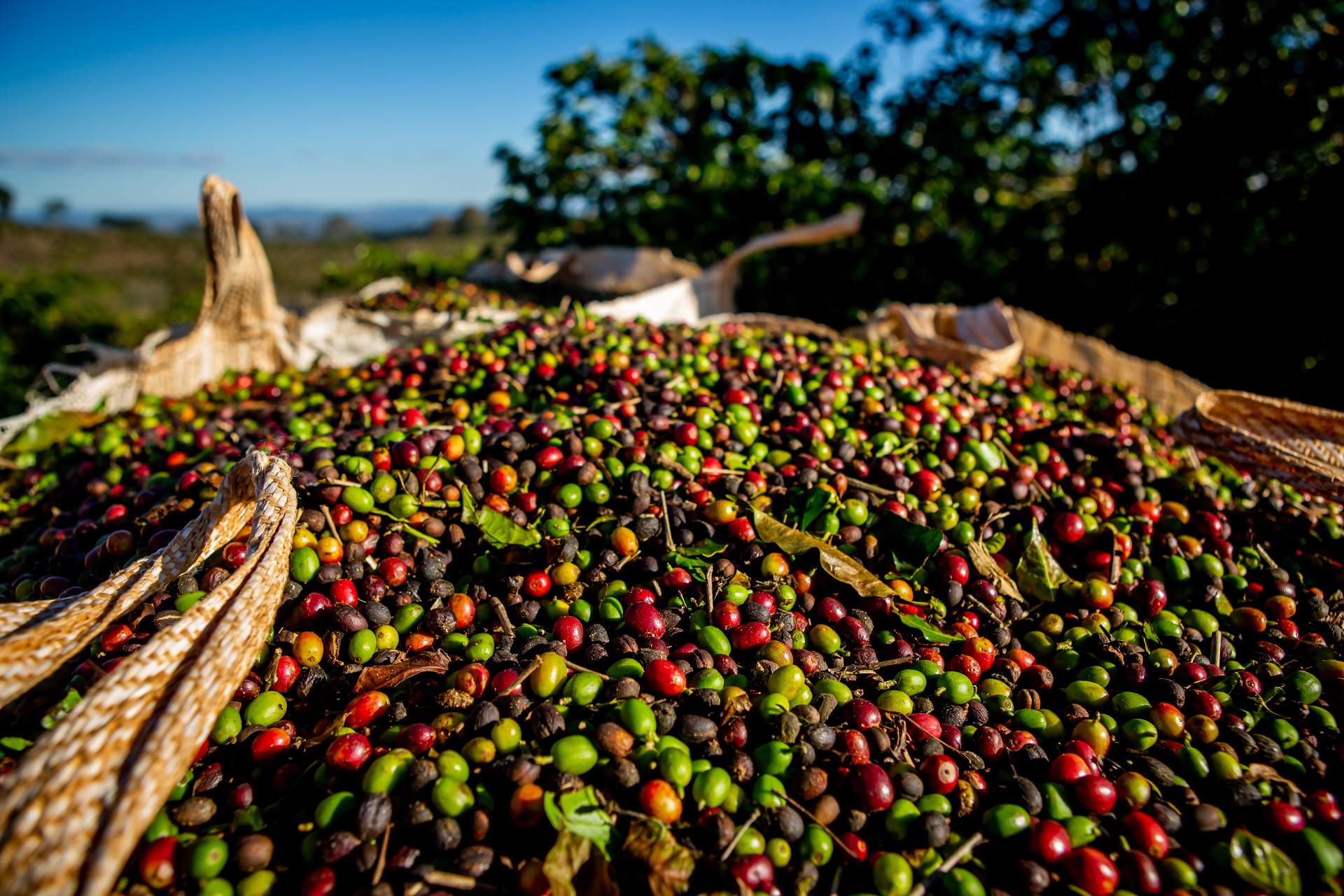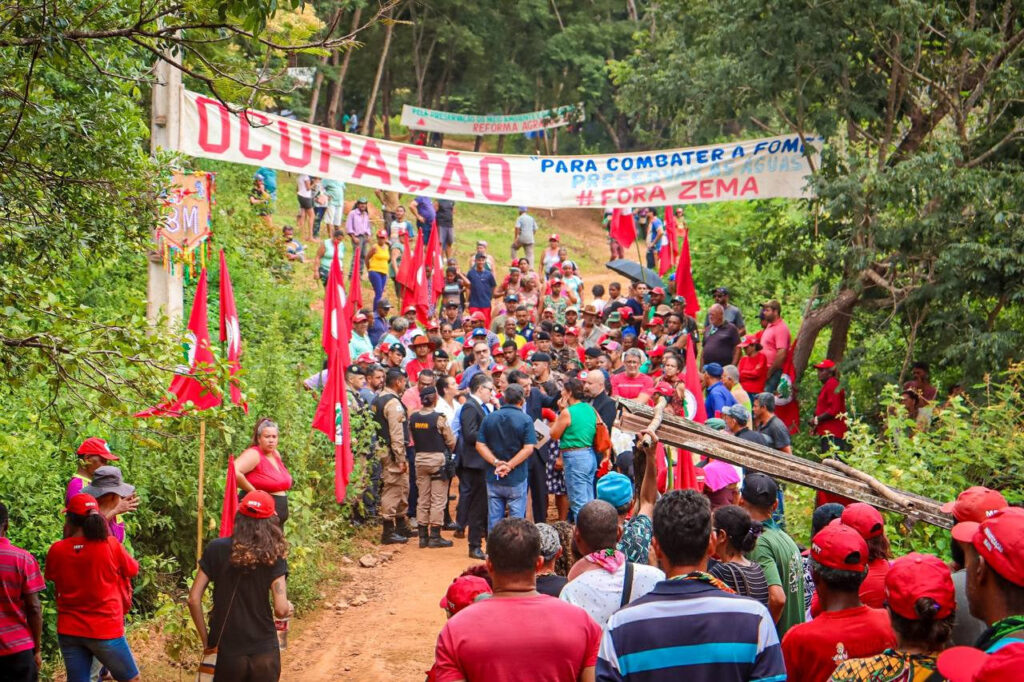Starbucks – the world’s largest and most famous coffeehouse chain, with 35,000 points of sale in 83 countries – is unable to guarantee that the coffee sold at its stores is not associated with serious labour and human rights crimes such as low wages, harvest workers eating cold meals, inadequate accommodation and even child and slave labour.
At least four properties experienced problems like this while they were still supplying the US-based multinational. The cases are portrayed in the report “Behind Starbucks coffee,” published by Repórter Brasil (available in Portuguese and English).
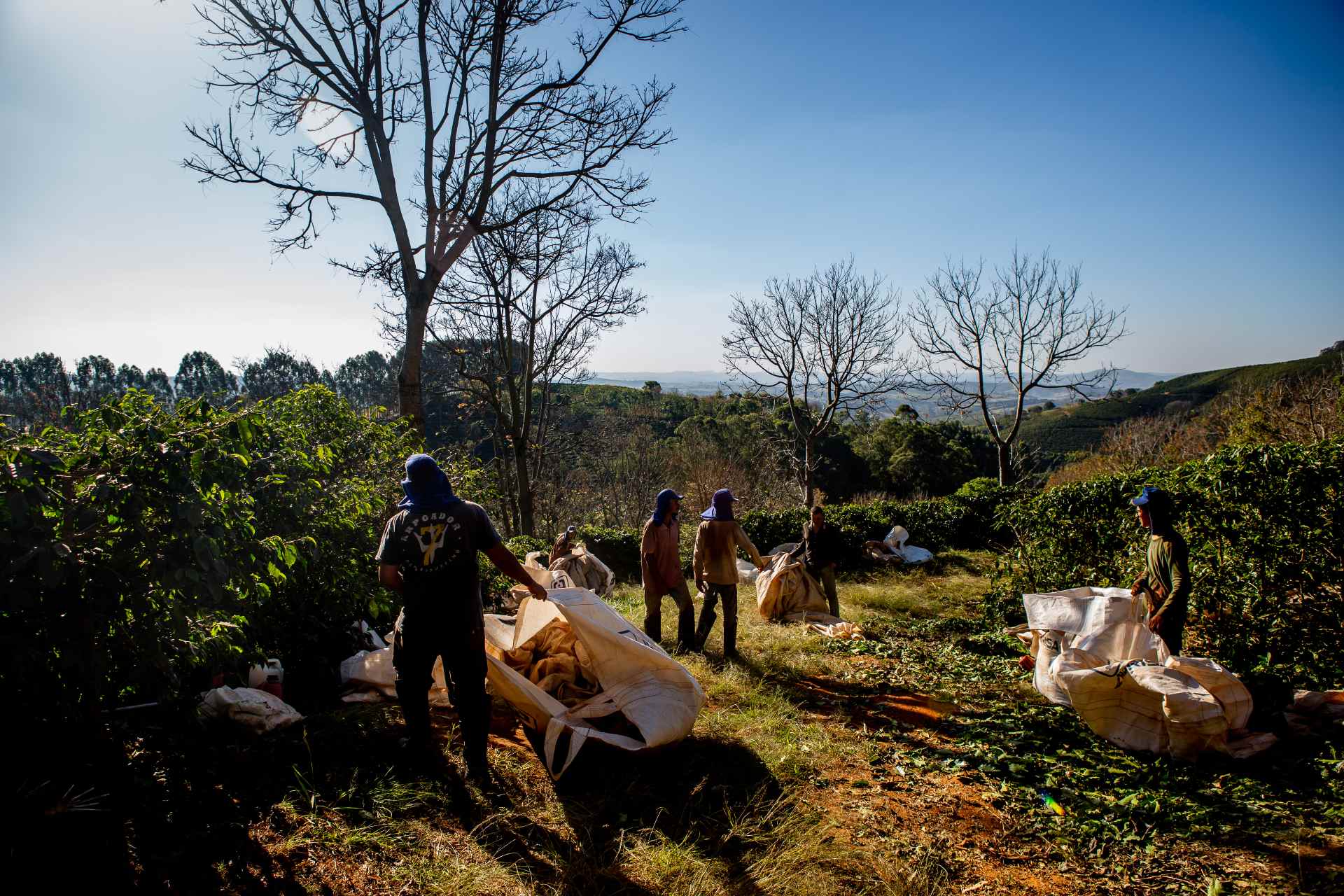
The document shows that coffee farms in Minas Gerais state where Ministry of Labour and Employment inspectors found violations hold – or held until recently – the C.A.F.E. Practices seal, which stands for Coffee and Farmer Equity. That is the certification programme that, according to Starbucks, evaluates suppliers according to more than 200 indicators related to transparency, quality, social and environmental responsibility. Starbucks Corporation purchases approximately 3% of the
coffee produced in the world. At least 14 companies and cooperatives have exported to Starbucks units in the US in the past two years, according to customs data accessed by Repórter Brasil.
It is yet another situation that exposes the limits of the certification market. “Regardless of the certifier, the model is fragile and not very transparent. Every year we show cases of certified farms with unregistered workers who are not paid their vacations or benefits,” says the leader of the Coordination of Rural Employees of the State of Minas Gerais (ADERE), Jorge Ferreira dos Santos Filho.
Read more: Winery caught with slave labour in Rio Grande do Sul held the ‘Great Place to Work’ seal
Labour irregularities in the industry are not limited to Starbucks’ supply chain. Repórter Brasil has already exposed similar problems among suppliers of Nestlé, McDonald’s and other companies that are major grain buyers.
In 2022, coffee farming was one of the top five sectors in terms of number of reports on worker exploitation in Brazil. In total, 39 coffee estates were inspected and 159 workers were rescued from modern slavery.
15-years-old harvest worker rescued from slave labour
One of the highlighted cases is that of the Mesas Farm in Campos Altos, where 17 workers were rescued from modern slavery in August 2022. The group included a 15-year-old teenager and two others aged 16 and 17.
Working under the sun or rain and handling heavy loads – a coffee sack weighs 60 kilos – is included in the List of the Worst Forms of Child Labour and is prohibited for young people aged 16-18. The work of children under 16, in turn, is prohibited under any circumstances, with the exception of the apprentice category, with requires school attendance and tutoring, among others.
The Mesas Farm is managed by Guilherme de Oliveira Lemos, who also runs the Ourizona Farm and roaster Café Ourizona in Córrego Danta as well as the Bom Jesus e Pedras Farm in Santa Rosa da Serra.
Café Ourizona holds Starbucks’s C.A.F.E. Practices seal. It joined the programme a month before the slave labour incident at Mesas as shown by an Instagram post from July 2022. Furthermore, the properties are certified by the Rainforest Alliance, a seal renewed in March this year, after the workers were rescued.
Evidence indicates joint administration of the properties. Informal workers at Mesas were formally hired by Ourizona after the operation conducted by labour inspectors.
According to the inspection report, the employer did not even provide basic tools for harvesting such as a rakes, bags and cloths used to store grains. One worker said she had to buy new gloves every four days to protect her hands when harvesting coffee. The R$ 5 per glove came out of her pocket, as did the cost of the hat, boots, food and accommodation – all in violation of labour laws.
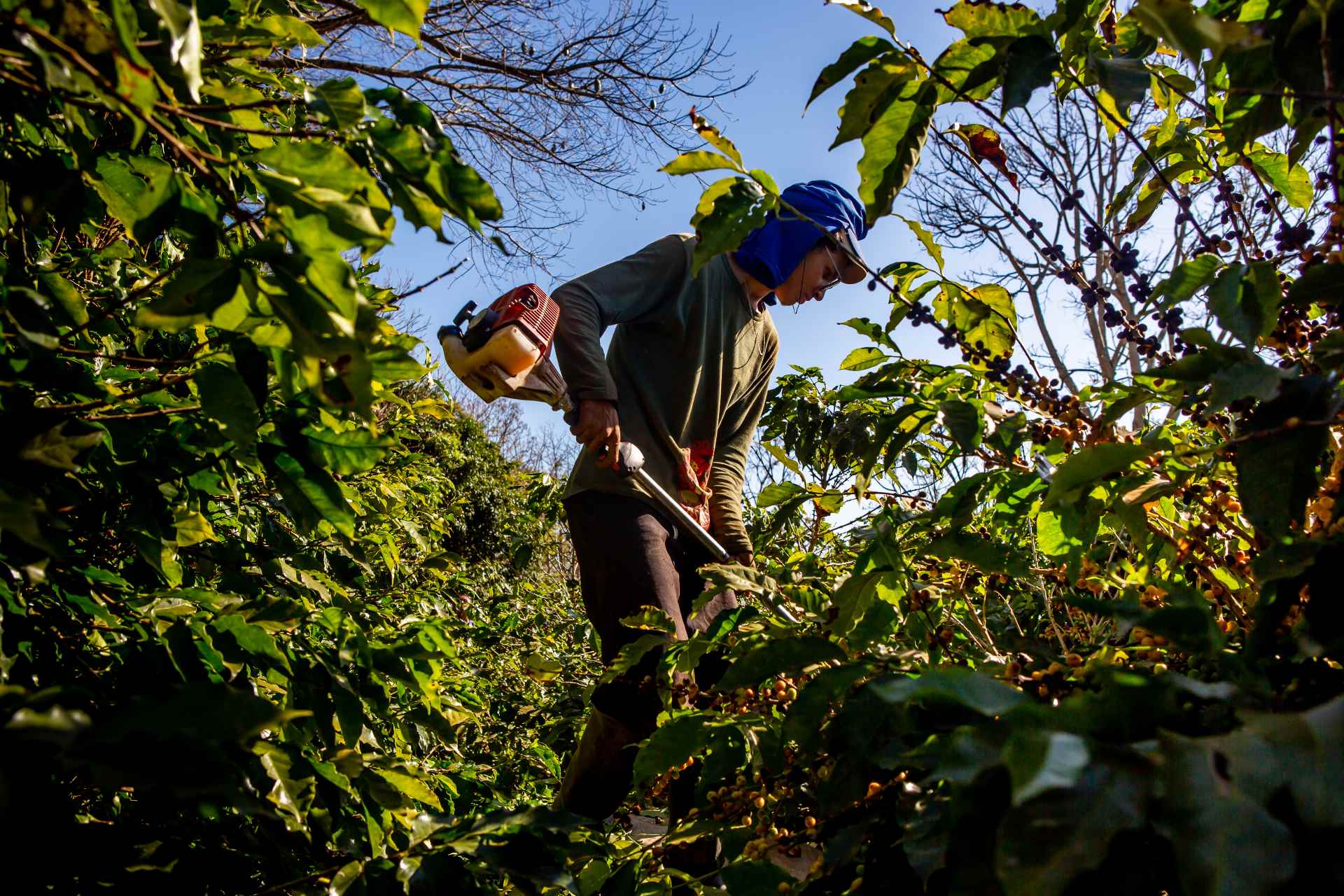
Workers had no place to have lunch in the field. On the ground or inside a bus, they ate their meals cold or heated them on a can with alcohol. Without chemical toilets, they would relieve themselves out in the bush or in the middle of the coffee trees.
Through his lawyer, Lemos stated that he would not respond to Repórter Brasil. Starbucks admitted that Mesas is certified but did not explain whether the certification will be suspended. “Our records show no active labour complaints, litigation or open grievances against Guilherme de Oliveira Lemos,” the company stated. The Rainforest Alliance confirmed the certification and reported that two audits were conducted on the site. “According to the reports on the May 2023 audit sent by the certifier to Rainforest Alliance, there was no information about these inspections in August 2022,” he claimed. Read the full responses here.
Read more: Risk of slave labour leads certifier to be stricter with Brazilian farms
A ‘Human Resources mistake’
Another case of a teenager working irregularly is that of the Cedro-Chapadão Farm in Ilicínea, jointly managed with the Conquista Farm by Sebastião Aluísio de Sales, his wife and sons.
In July 2022, a 17-year-old young man was rescued from modern slave labour on the family’s coffee plantations. He and 25 others had left Irecê, Bahia, 1,500 kilometres away, to harvest coffee at the two farms. The inspection operation found another 11 labour violations.
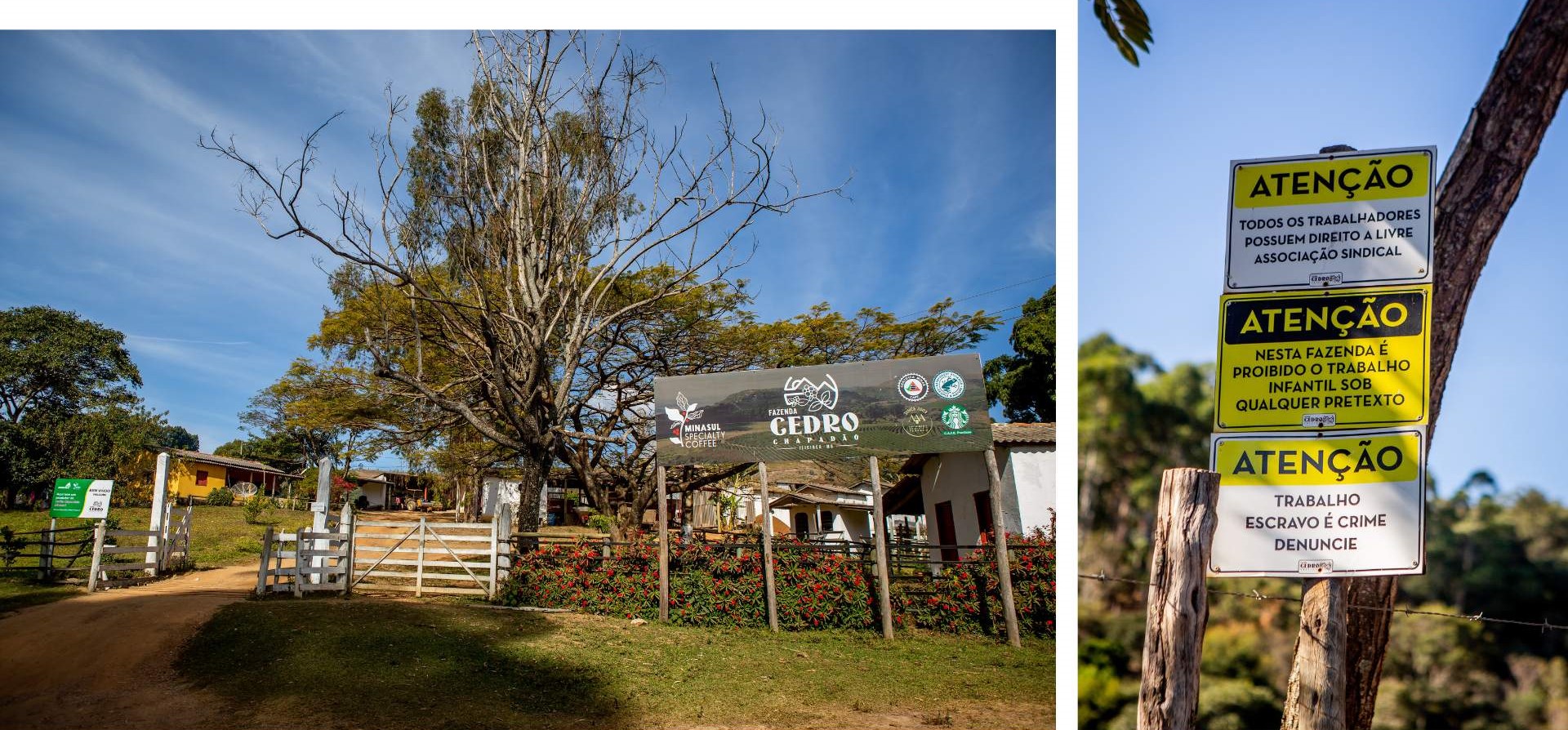
According to Sebastião’s son Rodrigo Sales, hiring the “17-year-9-month-old” young man was “a mistake made by [their] HR [Human Resources] accounting department.” Documents found by labour inspectors indicate that another teenager aged 16 had been hired to harvest coffee that year.
The young man was rescued from the Conquista Farm rather than Cedro, which holds the C.A.F.E. Practices seal. But the practices were the same on both properties, and the labourers had also been hired to work at Cedro. “The Cedro-Chapadão United Farms are a group and therefore are jointly managed; harvest workers are aware of the work schedule for the season that starts at Conquista and goes on to the other farms as coffee matures,” admitted Rodrigo Sales.
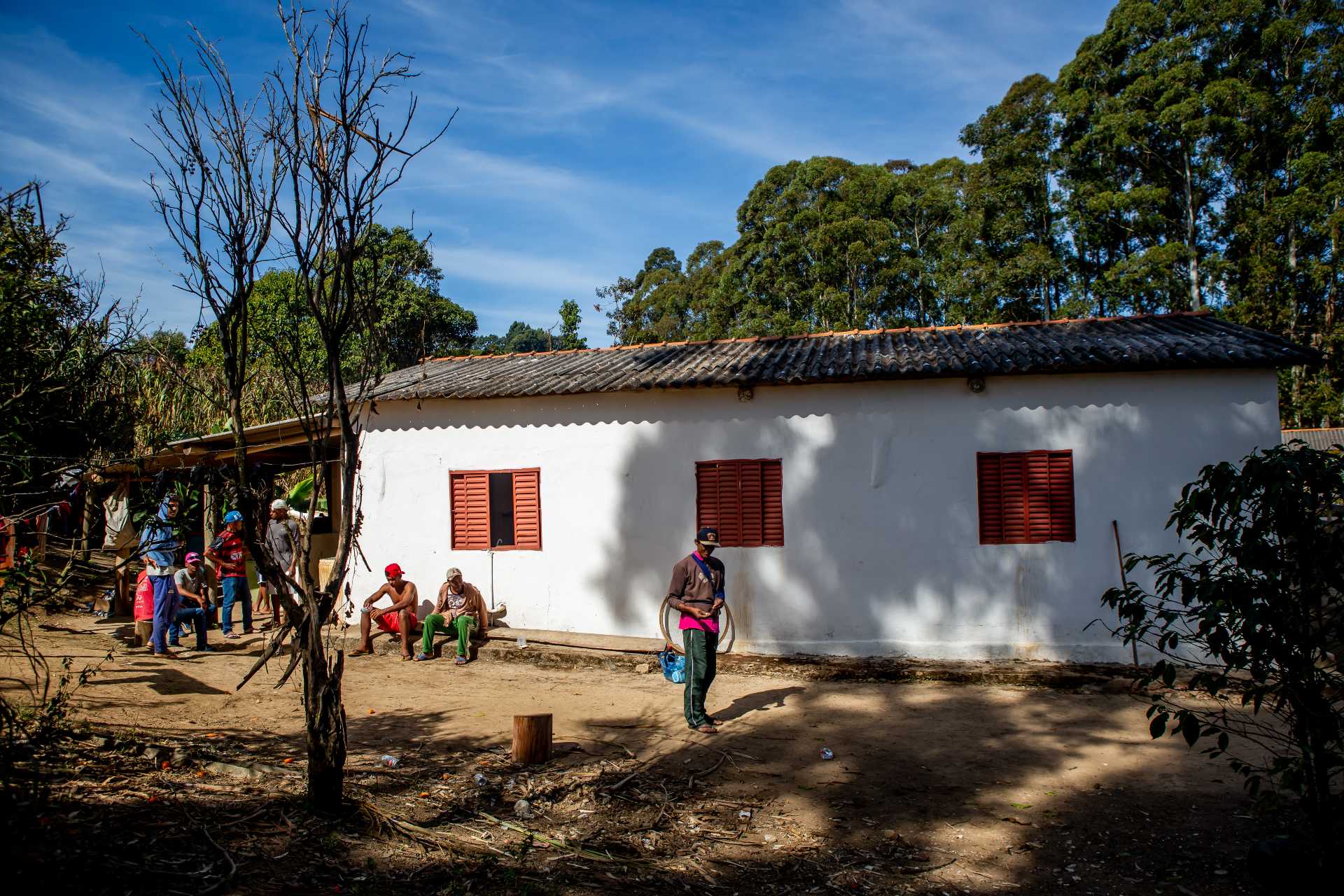
Inspectors say that the employer did not provide drinking water or protective equipment such as gloves, hats and boots. The accommodation facilities lacked bedding, closets or a proper place for meals. The group still had to pay for bus tickets from Irecê to the farms, which should have been provided by the hirer. In his statement, the rescued young man said that R$ 400 were deducted from his wages to pay for the ticket, in addition to food expenses.
Read more: Starbucks supplier farm ignores law and does not provide coffee harvesting machine, workers say
Sebastião Sales paid around R$ 6,000 as termination fees and moral damages. Rodrigo Sales defends himself: “The Cedro-Chapadão United Farms have never subjected any worker to degrading conditions, forced labour or slavery-like conditions.” According to him, Cedro was certified by C.A.F.E. Practices in 2021, but did not effectively participate in the programme until 2022 and did not do business with Starbucks in that period. The multinational only stated that the property is no longer active in the programme, without informing when it left and why. Read the full explanations here.
Repeat violators
Also a holder of the C.A.F.E. Practices seal, the family-owned company Bernardes Estate Coffee, with two farms in Patrocínio, is a repeat violator.
In 2019, it was fined nine times for failing to provide personal protective equipment (PPE) or free first-aid materials, enough toilet paper or showers, a proper place for meals or a water tank protected against contamination. Three years later, José Eduardo Bernardes was fined for 16 violations, including not having receipts on payments made to employees, not offering training required by law, and not providing toilets at the workplace.
Repórter Brasil visited the farm this year and witnessed the repetition of the problems. Not everyone was wearing PPE. Workers report that they are recruited in distant towns but the contract is only signed when they arrive, a strategy used to avoid paying for transportation. They also say that employers charge rent from those who stay in accommodation belonging to the family.
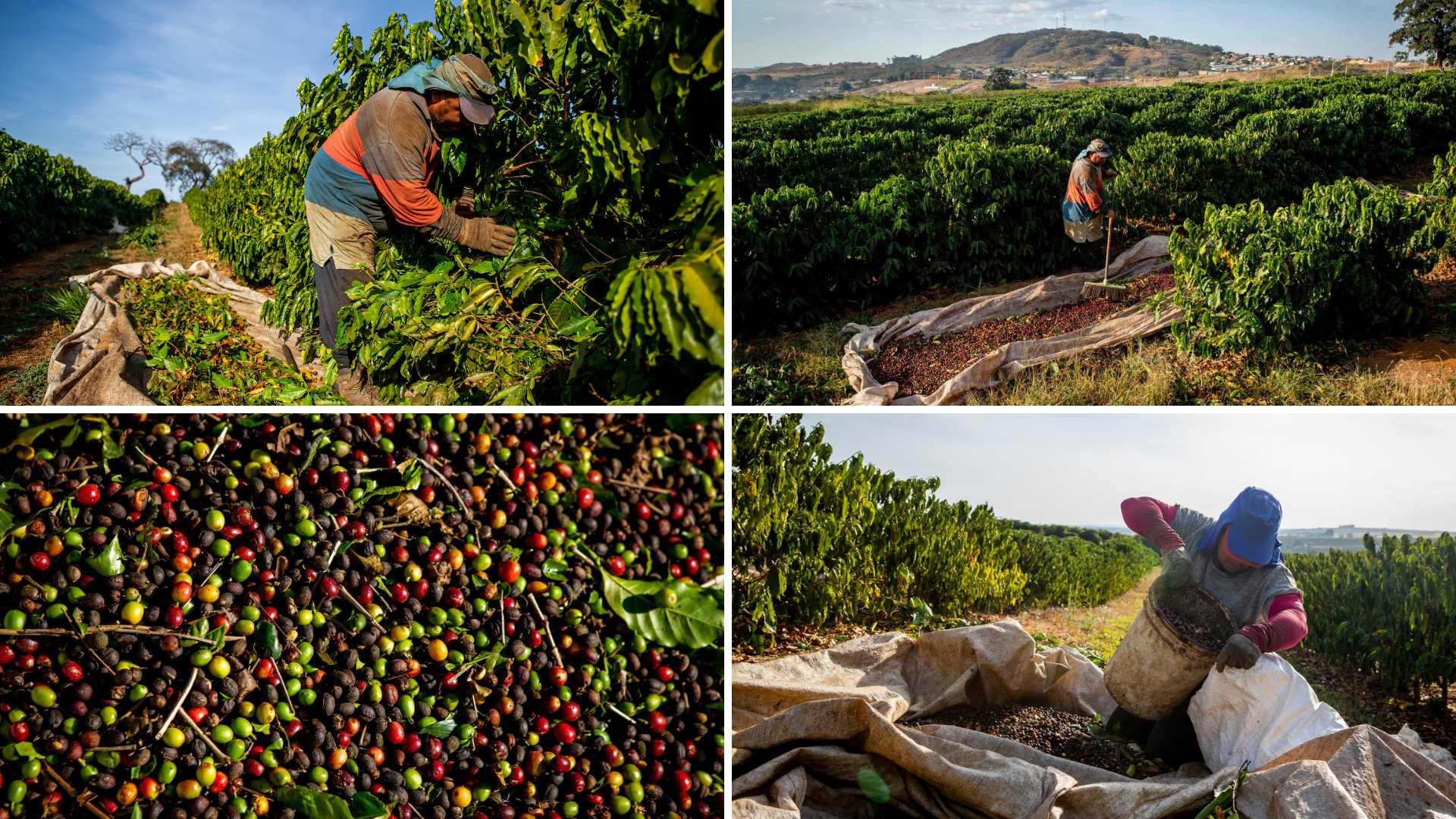
Bernardes Estate Coffee did not respond to questions sent by email. Starbucks confirmed that the company is certified and is under investigation but declined to share details. Read the full statements.
Another repeat violator is producer Carlos Augusto Rodrigues de Melo, president of Cooxupé, the largest coffee grower cooperative in the country and the main supplier of Starbucks, according to export data accessed by Repórter Brasil. Properties owned by the Melo family were fined for violating labour regulations in 2021 and 2022.
In 2021, an inspection found illegal deductions from wages related to the purchase of portable harvesting machines known as derriçadeiras and fuel at the Pedreira Farm in Cabo Verde, Minas Gerais. The following year, another farm belonging to the family – Palmital – was fined 16 times for not paying labour rights, such as the Time of Service Fund and the 40% fine for unfair dismissal.
The problems continue. This year, Repórter Brasil found workers from the Jequitinhonha Valley in northern Minas Gerais who say they work on the farms due to lack of other opportunities. “We don’t really like it, but need makes the job wonderful,” said a 24-year-old man who had already lost 10 kg in a month.
The appearance of the small accommodation facilities (one bedroom, kitchen and bathroom) shows neglect with cleaning. Repórter Brasil found bathroom walls dirty from floor to ceiling. There was no area for meals, which were prepared on a two-burner stove purchased by the workers themselves. Employees say that cooking gas also came out of their pockets, as do blankets and pillows, which is against the law. Drinking and bathing water was stored in an old fuel tank.
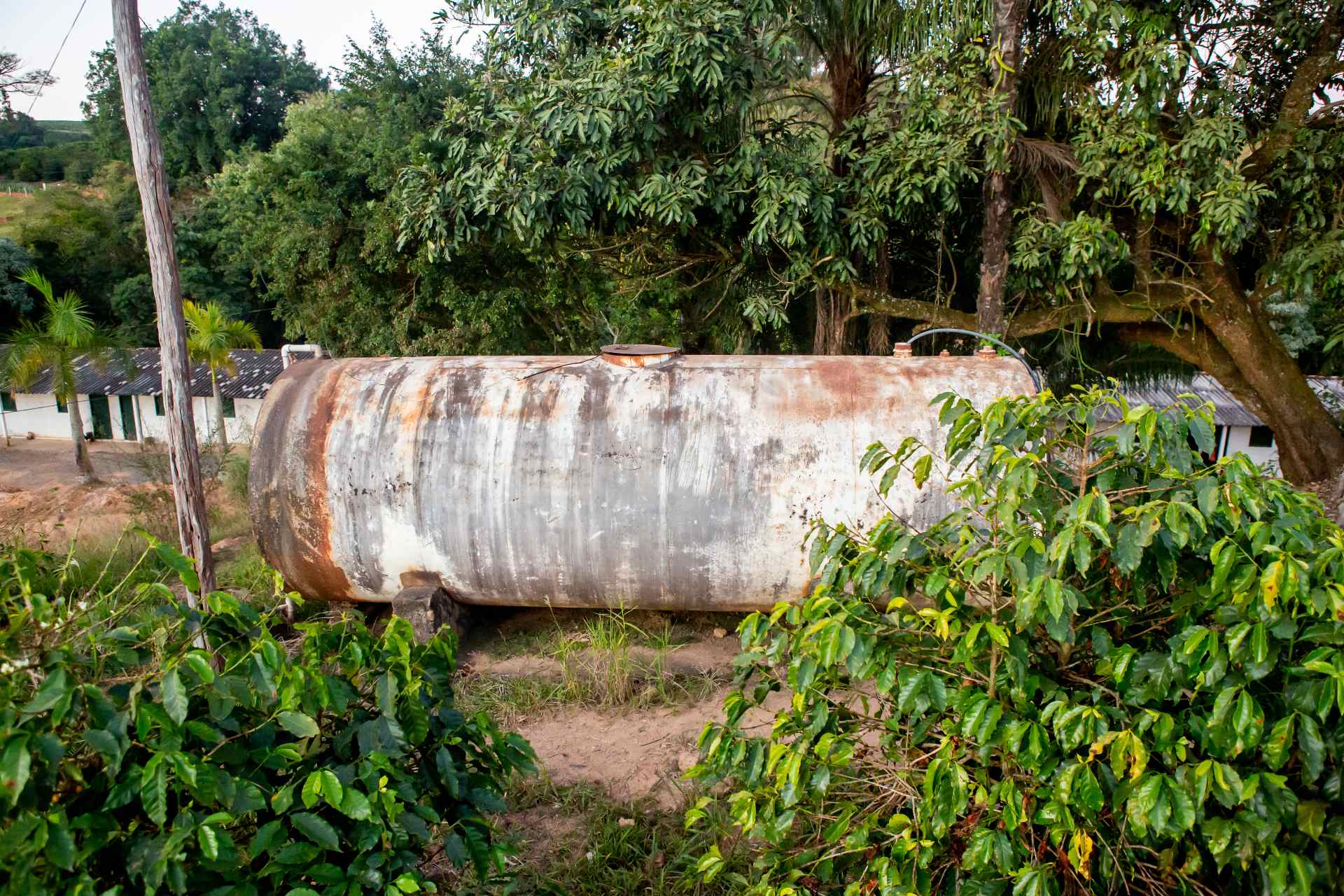
In a note, the Pedreira Farm only said that “it complies with labour legislation” and follows “international certifications’ requirements.” The company did not deny its relationship with Starbucks but did not explain when it was certified. Starbucks stated that Pedreira’s seal is “expired,” without saying when it happened. Cooxupé stated that it guarantees the traceability of its products and that it respects environmental, social and legal standards. All explanations can be read in full here.
No surprise
The violations occur in an industry that ranks fourth in terms of revenue in Brazil’s trade balance. In 2022, 52.8 million sacks were harvested, placing the country as the world’s largest coffee exporter. At the end of the supply chain, Starbucks Corporation recorded net profits of US$ 3.2 billion in 2022.
In this scenario, there are no ‘excuses’ for failing to sign formal contracts that respect workers’ labour rights, says Gustavo Ferroni from Oxfam Brasil. “This doesn’t depend on coordinating public policies, but rather on the industry itself.”
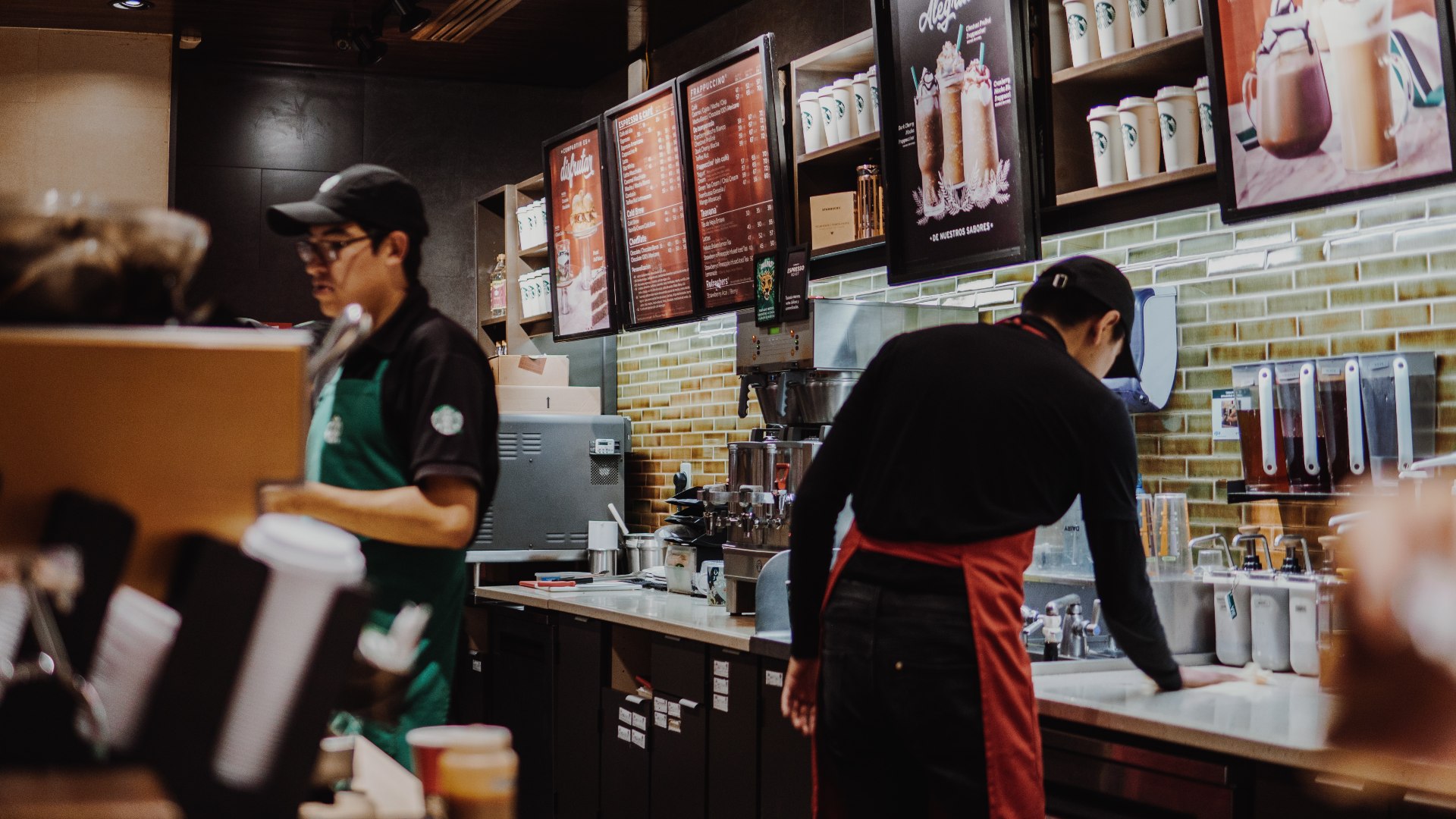
In 2020, the organization estimated a 41% gap between the average wage paid in plantations in Minas Gerais and a decent wage, which should cover expenses with food, housing, education, health, clothing and other essential needs, according to parameters of the Global Living Wage Coalition.
For Ferroni, C.A.F.E. Practices would be more effective if inspections took place during harvest season, if audits were truly surprise (visits are notified in advance), and if actors outside the farms, such as trade unionists, were included in the dialogue.
The opinion is shared by Adere coordinator Jorge Ferreira dos Santos Filho. “If producers are warned that the farm will be audited, there is no surprise audit,” concludes the workers’ representative.
